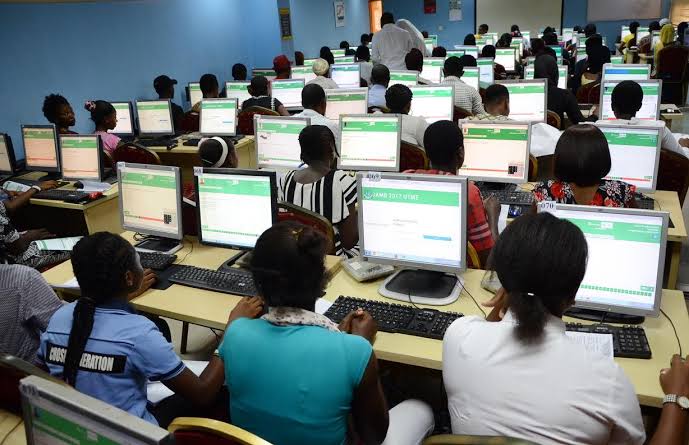‘120, 160, 140’ — concerns over JAMB’s cut-off marks for varsities in last six years

By Genevieve Aningo
On Thursday, the Joint Admissions and Matriculation Board (JAMB) officially set 140 as the cut-off mark for admission into universities in 2022.
The cut-off mark for students seeking admissions into the nation’s polytechnics and colleges was fixed at 100.
The decision was taken at the 2022 policy meeting on admissions to varsities, Nigerian Certificate of Education (NCE), and National Diploma (ND) held in Abuja.
During the meeting, however, JAMB registrar, Ishaq Oloyede, said every institution has the right to fix its own cut-off mark.
At the meeting, the minister of Education, Adamu Adamu, also cautioned all levels of tertiary institutions to desist illegal means of admissions as defaulters would be sanctioned.
Adamu emphasised that all admissions into universities, polytechnics and colleges of education must be processed through Central Admission Processing Systems (CAPS).
This year’s cut-off marks for tertiary insitutions, particularly that of varsities, have been eliciting intense reactions from the public and stakeholders in the education sector.
Many described the JAMB cut-off marks as another evidence of the dwindling quality in country’s education sector.
Joining the conversation, popular singer; Timi Dakolo wrote on Twitter: ‘’JAMB reduced cut off mark to 140. These are dangerous times. We were aiming for 230 that year’’.
Another handle @ Offcial_Sirwakie replied “Next year will be 120 and JAMB itself would become irrelevant with zero impact”.
Likewise, a carrer coach, Dipo Awojide, tweeted: ‘’folks that end in Colleges of Education are allowed to get in with lower entry requirements than folks who go to Uni but we expect a great country with smart kids. It’s unfortunate. Folks who score 100 in JAMB will teach your children English, Mathematics and Phonetics”.
Findings by CRISPNG showed that in the last six years, the cut-off marks for varsities have been between 120 and 160.
This is a sharp contrast to the 180-200 minimum benchmark obtainable in the early 2000s.
Commenting on this, Sheikh D. Abubakar, Head of Geography Department in Ibrahim Badamasi Babaginda Univeristy, Lapai Niger state, condemned the new cut-off marks released by JAMB.
According to him, the development shows the country is not ready to improve the status of its education system.
The don said 140 cut-off mark is only 35% of the total UTME score of 400, adding that such is not a pass mark or qualification to enter university.
“Nowhere in the world is 35% a pass mark when people are raising their bar to 50% before you get promoted or even accepted, we are going down,” he told CRISPNG.
Speaking on the implications, Abubakar lamented that tertiary institutions would be filled with unqualified students, a situation he said, discourages healthy competition.
He said: “Competition one of the features of schooling with different levels of students as far as intelligent is concerned would not be there. So you have a bunch of students that ordinarily believe that they are in the universities or colleges of education for the certificates”.
Abubakar said students with high intelligence quotient would eventually become lazy since there are no peers to challenge them and those with little intelligence would see the JAMB threshold band as a favour.
He also said the 2022 JAMB cut-off mark would affect parents and lecturers. On the parents, Abubakar maintained that the minimum score by JAMB would make more parents to enroll their children in other countries with better education system.
“Parents of middle class would also join because for middle class and high class individuals they believe that there is a need to have the knowledge in addition to the certificate,” he added.
The professor also argued that lecturers would not be motivated to impact knowledge since they are saddled with “students who may not embark on extra readings or academic research or drain the lecturers to provide good facilities. “
He added said that “most students from rural areas tend to be more intelligent, they are more into their academics than the urban kids for the urban centers.”
Abubakar said the only benefit of the new cut-off mark is the revenue generation for institutions and an opportunity to make case for increase in infrastructures to suit the teaming population.
“The most painful part is that we are intentionally and strategically saying that we are not ready for the development or the improvement for the status of our education system,” he said.


